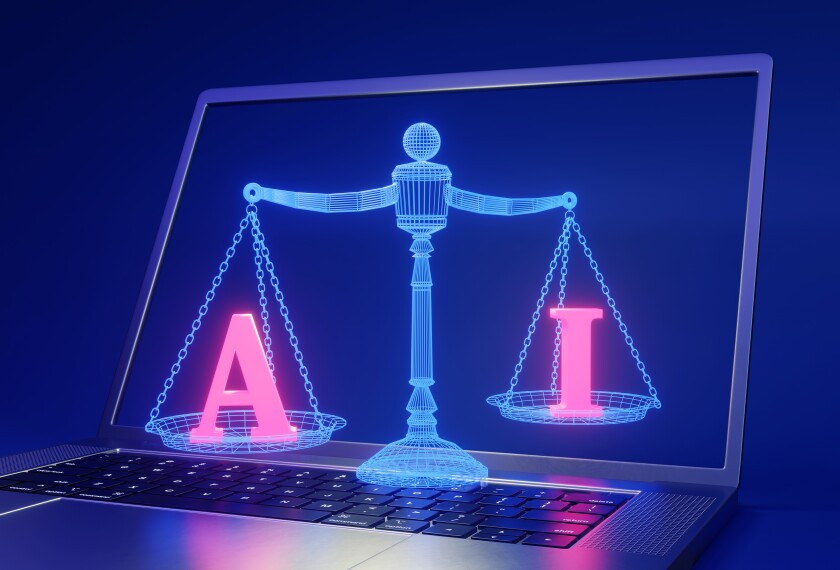Navigating AI's Murky Middle Future: Opportunities and Challenges
Explore how AI is transforming the world, balancing utopia and collapse, and reshaping our role as stewards of meaning.

Defining the AI Middle Future and Its Significance
The AI Middle Future is distinguished by the development of systems that can improve themselves without direct human intervention. This phase is significant because it marks a transition from narrow, task-specific AI to more generalizable systems. Unlike near-term AI, which focuses on incremental improvements in existing technologies, the middle future explores the potential of AI to autonomously enhance its capabilities. This phase also differs from long-term scenarios, which often involve speculative ideas like the singularity, by focusing on tangible, near-future advancements.
The Emergence of Self-Improving AI
Overview of MIT's SEAL Framework
MIT's SEAL (Self-Improving AI Learning) framework is a groundbreaking approach that enables AI systems to modify their architectures and algorithms autonomously. This framework is designed to facilitate continuous improvement in AI capabilities, making it a key player in the AI Middle Future. SEAL achieves this by integrating reinforcement learning with meta-learning, allowing AI systems to adapt to new tasks and environments dynamically.
How Reinforcement Learning Enables AI Self-Improvement
Reinforcement learning (RL) is a critical component in the development of self-improving AI. By leveraging RL, AI systems can learn from their interactions with the environment, updating their weights based on feedback. This process is essential for autonomous improvement, as it allows AI to refine its performance without explicit human guidance. For instance, in the context of SEAL, RL enables the AI to explore different configurations and select those that yield optimal results.
import numpy as np
## Simplified example of reinforcement learning in weight updates
def update_weights(weights, reward):
# Calculate the gradient based on the reward signal
gradient = compute_gradient(reward)
# Update the weights using the gradient
new_weights = weights + learning_rate * gradient
return new_weights
## Example usage
current_weights = np.array([0.5, 0.3])
reward = 0.8
updated_weights = update_weights(current_weights, reward)
print("Updated Weights:", updated_weights)
This code snippet illustrates a simplified version of how reinforcement learning can be applied to update AI model weights based on received rewards, a fundamental concept in self-improving AI systems.
Opportunities in the AI Middle Future
Economic Transformation and Growth
The AI Middle Future holds immense potential for economic transformation. By automating complex processes and enhancing decision-making, AI can drive innovation and productivity across industries. For example, AI can optimize supply chains, reduce operational costs, and enable the creation of new products and services. This economic transformation can lead to the emergence of new industries and job opportunities, fostering sustainable growth.
Enhancing Human-AI Collaboration
AI systems in the middle future will augment human capabilities, particularly in decision-making and problem-solving. By collaborating with AI, humans can leverage its analytical power to make more informed decisions. Additionally, AI can foster creativity and strategic thinking by providing insights and suggestions that humans might not have considered. This collaboration will be essential for tackling complex challenges in fields like healthcare, finance, and education.
Societal Benefits of AI Advancements
The societal benefits of AI advancements in the middle future are vast. AI can improve healthcare by enabling early disease detection, personalized treatment plans, and more efficient drug discovery. In education, AI can provide personalized learning experiences, making high-quality education more accessible. Furthermore, AI can address global challenges like climate change by optimizing resource management and reducing waste.
Challenges in the AI Middle Future
Ethical and Moral Dilemmas
As AI becomes more advanced, ethical and moral dilemmas arise. Issues like bias, fairness, and transparency must be addressed to ensure that AI systems are aligned with human values. For instance, biased training data can lead to unfair outcomes, undermining trust in AI. Therefore, it is crucial to develop ethical guidelines and ensure accountability in AI decision-making.
Existential Risks and Safety Concerns
The development of advanced AI systems also raises existential risks. If AI goals are not aligned with human values, the consequences could be catastrophic. Ensuring that AI systems are safe and beneficial is a critical challenge in the middle future. This requires robust safety measures and continuous monitoring to prevent potential misuse.
Societal Impact and Disruption
AI can disrupt traditional workflows and employment structures, leading to psychological and cultural effects. While AI creates new opportunities, it also poses risks to certain jobs. Managing this disruption requires strategies for workforce adaptation and social support. For example, education and retraining programs can help workers transition to new roles in an AI-driven economy.
Read more about the impact of AI on cognitive abilities.
Navigating the AI Middle Future
Strategies for Responsible AI Development
Responsible AI development is essential for navigating the middle future. This involves adopting best practices, such as ensuring transparency, fairness, and accountability in AI systems. Regulation and governance also play a crucial role in shaping the future of AI. By establishing clear guidelines and standards, policymakers can ensure that AI development aligns with societal values.
Preparing for an AI-Driven World
Individuals and organizations must adapt to the rapid advancements in AI. This requires building resilience and adaptability to thrive in an AI-driven world. For instance, businesses can invest in AI training programs to upskill their workforce. Similarly, individuals can embrace lifelong learning to stay relevant in the job market.
The Role of Human Stewardship
Human stewardship is vital for ensuring that AI development remains aligned with human interests. This involves fostering a culture of responsibility and ethical stewardship. By prioritizing human well-being and values, we can create an AI future that is beneficial for all.